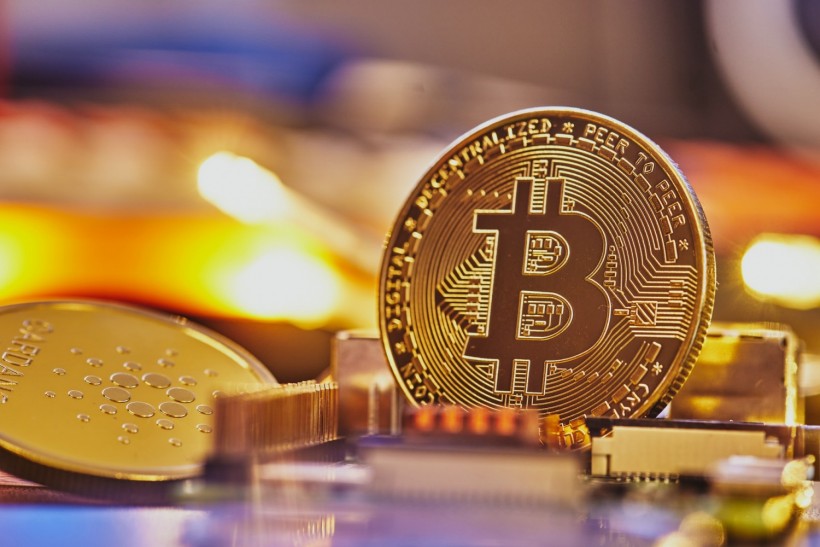BRAZIL WITH MASSIVE POLICIES TO MAKE CRYPTOCURRENCY MAINSTAY

If you had doubts about cryptocurrency's adoption in the world, think again.
The world is slowly but surely moving into the age of digital currencies and blockchain technologies, and one country that isn't allowing the wave to move past without taking full advantage is Brazil.
Yes, the South American footballing powerhouse are making plans to have tax exemptions for cryptocurrency rigs imported into the country. The proposal is still on the floor of the Brazilian congress. And the signs are promising, causing people to tag Brazil as the MECCA OF MINING. And hopeful that cryptocurrency exchanges will thrive in Brazil.
How true can this be? Let's take a deep dive.
WHAT ARE BRAZILIAN LAWMAKERS PROPOSING?
The Brazilian congress has had a plethora of proposals to elevate cryptocurrency from a speculative asset and a store of value to more, a move that will allow platforms such as Redot.com be successful in Brazil. The proposals have been on the floor of the congress for weeks now as more cryptocurrency enthusiasts in the country clamor for more inclusive policies for digital assets in Brazil.
The rest of the world might be divided on the usefulness of cryptocurrencies, but some countries are taking giant leaps and daring the odds. They are passing bills that open the door for more adoption of cryptocurrencies in their various countries. And Brazil is not left out. The plethora of proposals for a variety of cryptocurrency-related issues on the floor of the Brazilian congress is making people tag Brazil crypto as the Mecca of Mining.
Now, whatever religion you're inclined to, when a place is tagged the 'Mecca' of anything, it means the place has become a powerful and relevant hub for whatever idea it is being touted to be the Mecca of. Brazil's recent policy moves are bringing the vibes and excitement. They (Brazil) might be the next big thing in cryptocurrency mining around the world.
So, before we unpack all that the policies are saying concerning cryptocurrency in Brazil, let us unpack what these policy proposals are and how they'll affect the Brazilian economy and cryptocurrency adoption and regulation at large.
WHAT ARE THE THREE POLICY PROPOSALS BY BRAZILIAN LAWMAKERS?
The proposals on the congress house are:
-
Imported mining rigs will be given tax exemptions.
-
Tax exemptions on mining that uses renewable energy
-
Elevating cryptocurrency from a commodity to a national currency.
These proposals, which, according to a report on Suedenheiro, a Brazilian newspaper, are being deliberated on the floor of the congress, marks a positive turn for cryptocurrencies in Brazil. And in South America.
Cryptocurrency has had mixed reactions in South America. Some countries believe that cryptocurrency's adoption will cause a devaluation of national fiat currencies and lead to more financial corruption. But others in favour of cryptocurrency believe adopting cryptocurrency and blockchain technology will open financial doors for countries that adopt them.
WHAT ARE THE EFFECTS OF THESE POLICY PROPOSALS ON BRAZIL'S ECONOMY?
These policy proposals have received both praise and condemnation. But there are positives from these policy proposals, if they go through.
Bitcoin tax exemption on mining rigs imported into Brazil will make Brazil, according to Ray Nasser, CEO of Arthur Mining, a cryptocurrency mining company, the "Mecca of Mining". With tax exemptions, mining companies around the world will flock to Brazil to set up mining plants. And given the crackdown on cryptocurrency miners in China - the country that formerly had the highest number of miners - there is a huge possibility that these displaced miners from China will find new homes in Brazil.
With new miners coming, Brazil, with an unemployment rate of (Insert) will have many of its citizens employed, and many others lifted off the trenches of poverty. The ripple effect of many mining companies in the country is that more small and medium businesses will spring up, other locals will be encouraged to start mining or get into cryptocurrency and a host of other positives.
With the above policy, miners will have to register their mining rigs so that the government can monitor its usage, both for environmental reasons and for economic reasons.
On the issue of giving tax exemptions to mining companies that use renewable energy, the policy will enable Brazil to make use of its excess produced electricity and buoy climate-conscious mining around the world.
One of the drawbacks many have had concerning cryptocurrency mining is the amount of energy used to mine bitcoin. As the hashrate increases, the energy required to mine increases. And let's not even get into Ethereum and its astronomical energy requirements and high gas fees.
Elon Musk had complained of the detrimental effect bitcoin mining had on the environment. His concern had made me take back his words on Tesla accepting bitcoin as payment. However, miners around the world have proposed and are currently using renewable energy to mine.
The policy, if implemented, will further show how committed Brazil is to tackling climate change. It will also send strong messages to other countries that have banned crypto mining because of climatic reasons. The message is simple: you can mine cryptocurrency and still have a clean environment.
The policy will also help in maximizing the excess energy in South American countries, especially Brazil.
While debates still rage on the floor of congress and on Brazilian streets on cryptocurrency mining plants getting tax exemptions, the reality on ground shows the policy will be more than beneficial to Brazil.
The argument is that Brazil currently rations power to small communities. If these mining plants are allowed into the country in their droves, small communities will suffer from power outages. Also, the power grid might be unable to handle the power demands of these mining rigs. Power rationing is done to protect the rig, but with more mining plants, the protection might be lost.
But counter arguments to these concerns is that Brazil's power issue isn't about available power but power transmission. So, the grid will be safe. And transmission will become better.
Finally, with regards cryptocurrency being a national currency, the wolves are still out on it. The central Bank, the policy proposal suggests, will be able to create and issue Central Bank Digital Currencies (CBDC). The CBDC will be Brazil's way of leveraging blockchain technology and digital currencies.
Subscribe to Latin Post!
Sign up for our free newsletter for the Latest coverage!













